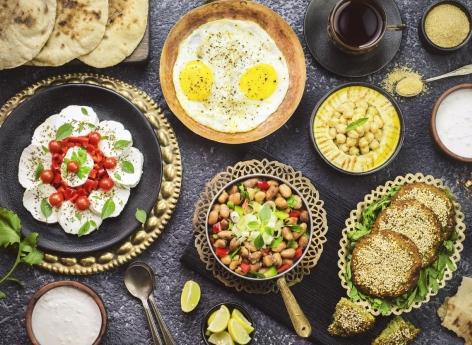A good diet preserves health. Here’s what to eat when you have cramps.

- Certain foods are to be preferred when suffering from muscle cramps.
- These are those rich in electrolytes, these minerals (magnesium, potassium, sodium, etc.) essential for the proper functioning of the body.
- They are found in bananas, dark chocolate, watermelon and Greek yogurt.
Cramps are painful, but the good news is that there are effective ways to reduce them. Indeed, researches show that they can be reduced thanks to a supply of nutrients found in the diet.
Magnesium is effective against cramps
This is particularly the case of magnesium, which is found in dark chocolate, bananas or even avocado. Indeed, this mineral plays a role in muscle health since it acts as a electrolytesthose electrically charged substances that the body needs to perform essential functions, including muscle contraction.
Magnesium also helps to strengthen the transmission between neurons and muscles, which makes it a great ally against cramps. It is recommended to consume 6mg/kg/day (which is about 360 mg/day for a 60 kg person).
Potassium consumption protects against cramps
Potassium, another electrolyte, is also recommended to fight cramps.
A study involving 230 women demonstrated that those who suffered from muscle cramps consumed less dietary potassium than those who did not present this symptom.
Potassium is also found in bananas and avocado, but also in Greek yogurt, papaya or sweet potato. The recommended potassium intake is 3,500mg for adults, including pregnant women.

Finally, because one of the possible causes of muscle cramps is dehydration, it is advisable to eat foods rich in water. Indeed, the proper functioning of the muscles requires adequate hydration and a lack of water can hinder the ability of muscle cells to contract, which can cause or exacerbate cramps.
Watermelon, in addition to its magnesium and potassium intake, is therefore particularly recommended since it is made up of 92% water.
Coconut water is also a top choice for those who suffer from cramps. Indeed, it is an excellent source of electrolytes such as potassium and magnesium but also of phosphorus, calcium and sodium.
Furthermore a study showed that when 10 male athletes rehydrated with an electrolyte-containing drink similar to coconut water after intense exercise, they were less likely to suffer from electrical stimulation-induced muscle cramps than when they hydrated with ordinary water.



-1740653386.jpg)












